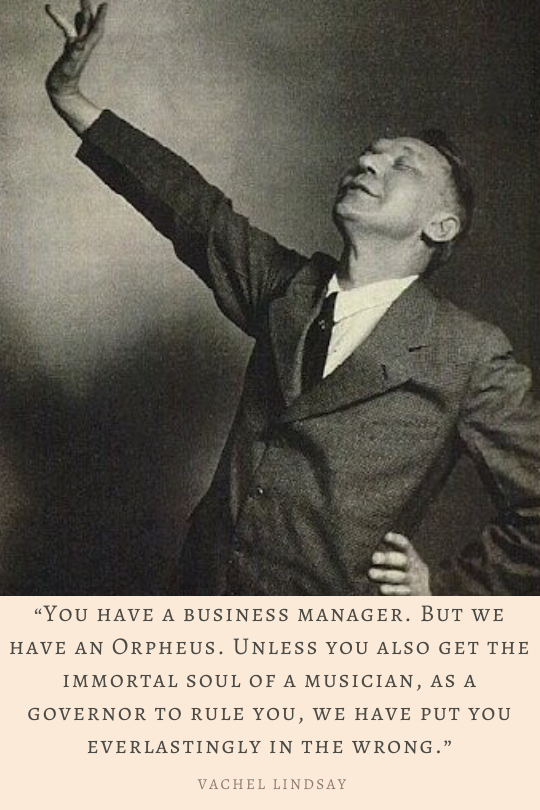Mario Palmieri on the Rebirth of Classical Studies and Lore: Critiques the Renaissance, Individualism, and Speaks of the Ancient Sages

- The Rationale of the Fascist Critique of Democracy and Individualism
- National Syndicalism and the Corporative State
I.
THE RATIONALE OF THE FASCIST CRITIQUE OF DEMOCRACY AND INDIVIDUALISM
Mario Palmieri’s critiques mirror the current rise of Anti-Liberalism.
This article is complementary to The Romaness of Fascism: Palmieri and Mussolini on Mazzini, Dante, and the Mission and Influences of Fascism. The idea of Democracy, is that the citizens are capable of ruling themselves, as John Locke held concerning our liberty; and could if given equality and advances in education, become enlightened citizens. The Fascists taught, that this is a delusional trait of the Democratic ideal.
In place of man’s sovereignty is placed an all-encompassing totalitarianism, led by a Hero, in the words of Palmieri, which is in the case of his argument, Benito Mussolini (see Anthony James Gregor’s Italian Fascism and Developmental Dictatorship, 2014 for further study). Mario Palmieri describes National Syndicalism in place of individualism in Chapter VIII THE FASCIST STATE, THE LEGACY OF ROME in the The Philosophy of Fascism, regarding the powers of the State.
By being dishonest and idealistic about democracy, Palmieri argues, that this prevents possibilities of a development of human society along other ways, in line with the needs, aspirations and potentialities inherent in the mass of people, and not as we wish them to be.
“Such being the facts, it is almost criminal to keep alive in mankind the hope of a true realization of the Democratic ideal.”
MARIO PALMIERI, THE PHILOSOPHY OF FASCISM
As Adam Curtis’s documentaries argue, the democratic masses are herded, managed and controlled. Likewise, Palmieri explains the mass of men and women, including you and me are slaves—slaves to our animal instincts and passions. But Palmieri hopes, perhaps the day may dawn when all men will be so many Socrates, i.e., wise; but “until that day dawns let us get rid of this great falsehood which is the Democratic Ideal, let us get rid of our hypocrisy, let us be sincere…”
“Fascism recognizes therefore at the outset that Democracy cannot be realized and that whenever and wherever it has been tried, it has degenerated sooner or later into an oligarchy of tyrannical autocrats – be they military, as of old, or financial, as of modern times.”
MARIO PALMIERI, THE PHILOSOPHY OF FASCISM
“The Renaissance is commonly held to have been, and undoubtedly it was in a way, all that the name implies of re-birth of classical studies and pagan lore. Still, had it been only that and nothing else, had it meant for the world simply an artificial reproduction of old idea, feelings, ways of living, etc., the Renaissance would have failed to represent a milestone in the road of human development. The spirit of the age had not true organic connection with the spirit of ancient times, and the classic-pagan-hedonistic attitude of mankind throughout that age was at best a poor reproduction of something which represented a moment of human history forming part of the past, a past as dead as the men who of this moment were the brightest lights.”
Vainly we offer knowledge, education, wisdom, to the common man. He cannot benefit of our offer. Mother nature dotes her human children very sparingly of the higher gifts of intelligence, understanding, spirituality. Once in a long time she gives birth to a Buddha, a Confucius, a Plato, a Jesus, filling the whole world with visions of a higher life opening its realms to the access of man.
Then, perhaps exhausted by her effort, she falls back to her everyday role of begetter of mediocrities, and those visions of a higher life remain only dreams of men who shall never be able to realize them.
Such being the facts, it is almost criminal to keep alive in mankind the hope of a true realization of the Democratic ideal. By so doing, in fact, we preclude the possibility of a development of human society along paths more in tune with the needs, the aspirations and the possibilities inherent in the mass of men; men as they really are in nature; not as we wish them to be.
Fascism recognizes therefore at the outset that Democracy cannot be realized and that whenever and wherever it has been tried, it has degenerated sooner or later into an oligarchy of tyrannical autocrats – be they military, as of old, or financial, as of modern times.
To a bastard form of social and political organization, which like all bastard things, cannot last because of its inherent falsehood, Fascism substitutes a genuine life-enhancing organization sprung from the recognition of the fundamental truth of life: the truth that the mass of men is created to be governed and not to govern; is created to be led and not to lead, and is created, finally, to be slaves and not masters: slaves of their animal instincts, their physiological needs, their emotions and their passions.
A day may dawn, perhaps, when all men will be so many Socrates, but until that day dawns let us get rid of this great falsehood which the Democratic Ideal, let us get rid of our hypocrisy, let us be sincere, let us acknowledge that the average man is unfit to rule his life and our life, let us resign ourselves to the rule of the best among us, for our good and for the good of the whole.
As Mussolini said the 17th of November, 1922:
“We want to uplift the people materially and spiritually, but not because we think that number, mass, quantity may create some special types of civilization in the future. We leave this type of ideology to those who profess themselves priests of this mysterious religion.”
And on July 23rd, 1933:
“Democracy . . . lives by and for words . . . But in times of crisis the people do not ask to be propagandized . . . they wish to be commanded.”
These words of Mussolini are the key to the two-fold aspects of Fascism:
- Characterized by its lack of faith in the masses ability to self-govern;
- And its great aim of uplifting their material and spiritual conditions.
II.
NATIONAL SYNDICALISM AND THE CORPORATIVE FASCIST STATE
“…the pressure of destructive forces continue, and it is clear that democracy must end in socialism.”
EDMONDO ROSSONI
NATIONAL SYNDICALISM, not to be confused with National Socialism. Georges Sorel, father of revolutionary syndicalism (Imagining the Worker’s Revolution: The Case of Georges Sorel), greatly influenced Benito Mussolini (see this Abstract for a primer on the influence of Sorelism on the young Mussolini). In relation to the introduction, the concept of National Syndicalism and the model of Corporativismo is relevant to what Palmieri is saying, because in the section on the Fascist State, we find the contrast with the American Conservative view of the State. Palmieri critiques the concept of individualism, and advocates Corporativism as the organizer of social life, transferring power to the State.
CHAPTER VIII THE FASCIST STATE, THE LEGACY OF ROME
“This manifestation of the Italians of all classes, all professions, all trades and all creeds into the framework of one enormous and far-reaching organization, which has for its end the material welfare of the whole, is called National Syndicalism.
This National Syndicalism represents the first attempt made to bring the egotistic claims of the individual under the discipline of the Sovereign State; for the realization of an aim which transcends the welfare of the individual and identifies itself with the prosperity of the whole nation.
To make this discipline possible, and the sovereignty effective in practice as well as in theory, Fascism has devised the “Corporazione,” an instrument of social life destined to exercise the most far-reaching influence upon the economic development of Fascist States. (The Italian word “Corporazione” which is currently translated into English by the apparently analogous word “Corporation,” means, more exactly in the Italian language, what the word “Guild” means in English; that is: associations of persons engaged in kindred pursuits. We shall nevertheless follow the general usage to obviate the danger of misunderstandings.)
Within the Corporations the interests of producers and consumers, employers and employees, individuals and associations are interlocked and integrated in a unique and univocal way, while all types of interests are brought under the aegis of the State.
Finally, through these corporations the State may at any time that it deems fit, or that the need requires, intervene within the economic life of the individual to let the supreme interests of the nation have precedence over his private, particular interests, even to the point where his work, his savings, his whole fortune may be pledged, and if absolutely necessary, sacrificed.”
DEFINITION OF SYNDICALISM
“Syndicalism developed out of strong anarchist and antiparliamentary traditions among the French working class. Greatly influenced by the teachings of the anarchist Pierre-Joseph Proudhon and the socialist Auguste Blanqui, it was developed as a doctrine by certain leaders of the French trade-union movement toward the end of the 19th century. In France, syndicalism is known as syndicalisme révolutionnaire (the word syndicalisme means only “trade unionism”). Syndicalist tendencies manifested themselves with increasing strength during the 1890s in the two main French labour organizations of the period—the Confédération Générale du Travail (CGT) and the Fédération des Bourses du Travail. The secretary of the latter, Fernand Pelloutier, did much to work out the characteristic tenets of syndicalism and to spread them among his workers. When these two organizations joined forces in 1902, trade unionism, and syndicalism in particular, gained an immense accession of strength.
The syndicalist, like the Marxist, was opposed to capitalism and looked forward to an ultimate class war from which the working class would emerge victorious. To the syndicalist, the state was by nature a tool of capitalist oppression and, in any event, was inevitably rendered inefficient and despotic by its bureaucratic structure. As an appendage of the capitalist order, then, the state could not be used for reform with peaceful means and must be abolished.” (Syndicalism, Britannica)











